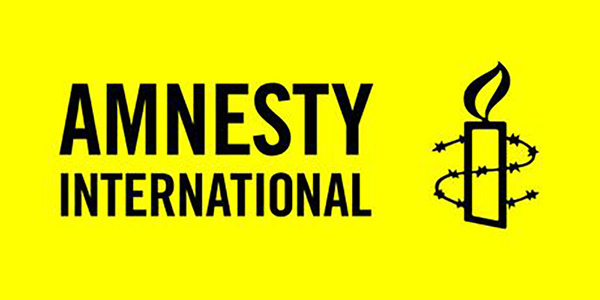Millions of people in the Americas live in countries that will likely enter their deadliest phase of the COVID-19 pandemic in coming weeks. Doctors, nurses, nursing assistants, cleaners in hospitals and nursing homes, medical transportation and security staff, who are working to support those affected by COVID-19, are putting their health and safety at risk. These people, while providing a herculean effort, must not be considered “superhuman”. During this pandemic, it is crucial to respect their human rights. Every person working on the frontline in health services deserves the protection of their rights to health and safety at work, freedom from harassment and discrimination, and their rights to speak up without being silenced.
Instead, Amnesty International has received multiple reports of harassment and disciplinary measures against workers who have spoken out about their poor working conditions, including insufficient care and protection equipment in the United States, Nicaragua, Honduras, Venezuela, Mexico, among other countries. Workers who have voiced concerns have been met with reduced wages, bullying and discrimination in the workplace or in some cases, termination of employment. These workers are defenders of the right to health in the face of this pandemic and must be ensured the freedom to express themselves, blow the whistle, and demand their rights without fear of reprisals.
Amnesty International is also alarmed to receive reports of the harassment, stigmatization and attacks against health workers face throughout the region. Denial of transport, community-based shaming, physical attacks, and even death threats against health sector workers by individuals and communities, are completely unacceptable. Amnesty International calls on all governments to publicly condemn any attempts to silence, discriminate or attack health workers, and investigate any reports of threats or physical abuse as well as hold perpetrators to account where necessary.
Health systems in the Americas face multiple challenges in the face of the pandemic. Latin America and the Caribbean is one of the regions with the least spending on health (public and private) per capita, according to United Nations figures. The region is also beset by entrenched inequalities. In many cases, public health systems were already at a critical point and did not provide adequate care for all those who need it, prompting international organizations to raise alarms for humanitarian concerns about access to health care in several countries of the region. These concerns are exacerbated now. Amnesty International has received multiple reports from countries across the region of doctors, nurses and auxiliary staff attending to COVID-19 patients with inadequate access to personal protective equipment (PPE), or worse still, denied protection or even disciplined for using it. States in the Americas should conduct an urgent assessment of their ability to ensure that all health workers have access to adequate PPE, and immediately request assistance from the international community for where they see gaps or are unable to guarantee necessary protections.
It is important to remember that all countries of the Americas countries are signatories, and nearly all state parties, to the International Covenant on Economic and Social Rights, a binding international human rights treaty which enshrines the right to safety at work in its Article 7 and the right to health in its Article 12. In addition, all countries of the region are members of the International Labour Organization (ILO), and in this respect have subscribed to a key series of core principles and commitments, and a number have ratified key ILO conventions that require them to protect the rights of all persons, including health workers, at work.
Finally, in commemorating International Workers´ Day, Amnesty International reminds countries of the Americas that health and auxiliary workers’ rights must be protected. Countries should ensure that all people working on the front line of the pandemic have access to their rights to and at work and the right to social security. Without protection of the rights of workers, frontline workers and people in the Americas will be left at greater risk in the face of the COVID-19 pandemic.













